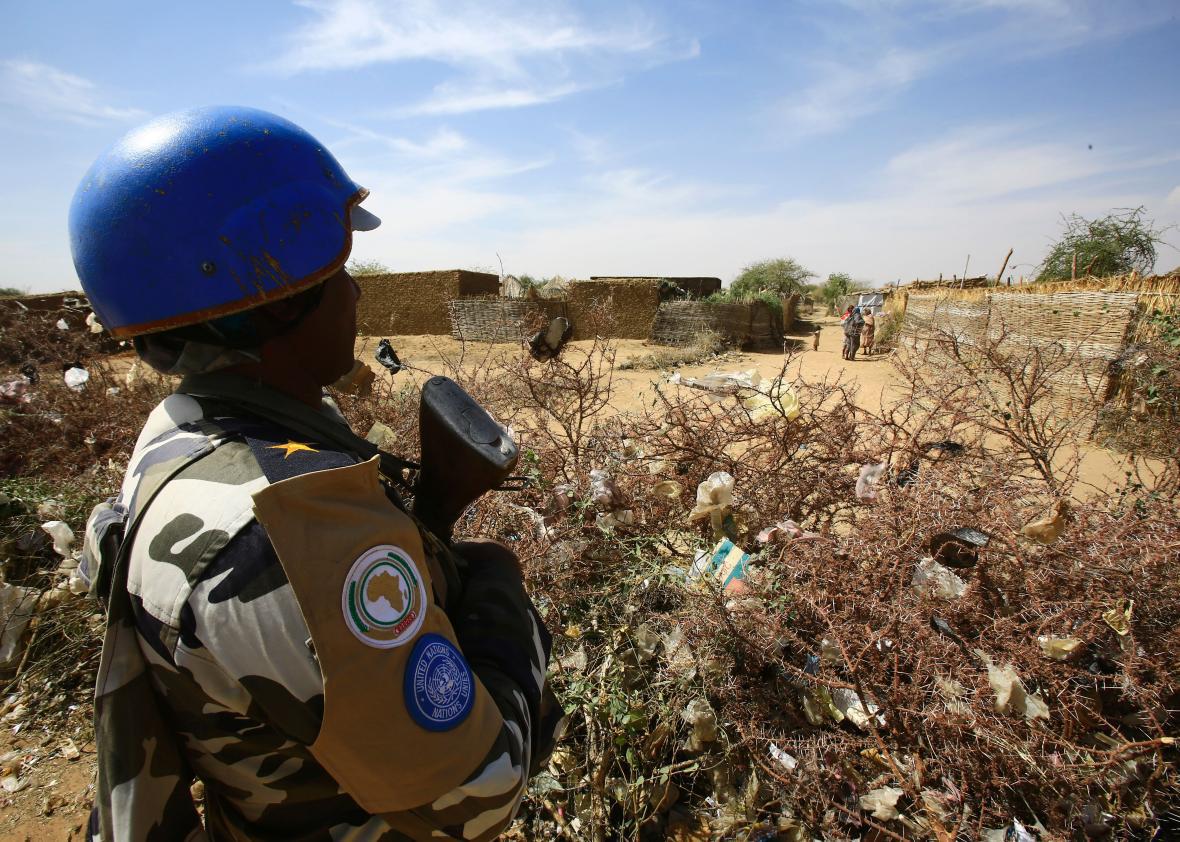Nikki Haley looks awfully pleased with herself here:
The ambassador is referring to a deal reached Wednesday, after weeks of negotiation between the U.N. and the Trump administration, to cut the U.N. Peacekeeping budget from $7.87 billion to $7.3 billion for the coming year. U.N. Blue Helmets are currently deployed in 16 operations around the world, though the missions in Haiti and the Ivory Coast are expected to wrap up soon. Under U.S. pressure, the U.N. voted to scale down the peacekeeping mission in the Democratic Republic of Congo in March and is expected to do the same for the program in Sudan’s Darfur region later his week.
The U.S. provides more than 28 percent of the funding for the program, and the Trump administration had originally sought a $1 billion overall cut to the program and to cap U.S. contributions at 25 percent.
These may sound like big numbers, but the amount of savings being passed on the U.S. taxpayer here—it will shake out to about $125 million per year assuming the U.S. continues to pick up a quarter of the budget—are minuscule compared with our defense programs. A single B-2 stealth bomber, most of which are currently not operational, cost $2 billion when the Pentagon requisitioned the warplanes in the 1980s.
And as economist Charles Kenny wrote in January when these cuts were first discussed, peacekeeping is pretty cost-effective, as seen in places from Kosovo to Sierra Leone, to Guatemala. One study found that a deployment of peacekeepers to a country reduces the likelihood of a civil war reigniting there by almost 70 percent. Fewer civil wars around the world means fewer refugees and less ungoverned territory for groups like al-Qaida and ISIS to operate in. Compared with the ongoing U.S. military engagements in Afghanistan, Iraq, and Syria, the peacekeeping program is a bargain.
To be sure, the U.N.’s program is harder to defend after recent appalling incidents. Nepalese peacekeepers introduced a cholera epidemic to Haiti that has killed more than 10,000 people and continues to sicken Haitians today. There have been hundreds of allegations of sexual abuse by peacekeepers in a number of countries, most notably in Haiti and the Central African Republic. The U.N., under former Secretary-General Ban Ki-Moon, was shamefully slow to acknowledge responsibility for these problems, and the U.N. still hasn’t done enough to compensate the victims or punish the wrongdoers. More fundamentally, foreign peacekeepers, usually living in fortified compounds and traveling in 4x4s, are often disliked and distrusted in the countries where they are deployed. Haitians disdainfully refer to the local U.N. mission, known by the French acronym MINUSTAH, as “TURISTAH.”
Haley has raised these issues as part of her overall critique of the peacekeeping program. Given Trump’s general view of the U.N. as a waste of money, it seems likely that the administration would be pushing for these cuts even if every operation were conducted flawlessly and peacekeepers were a paragon of virtue and professionalism. But the U.N. itself deserves some blame for the fact that such a vital program has become such an easy target.
